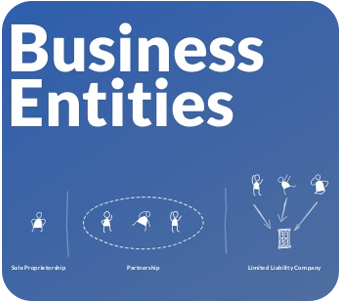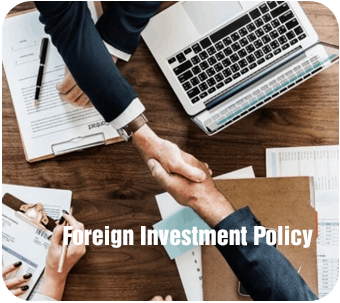Vietnam
1Stopvn Co.,Ltd
6nd Floor, Suite 603, VCCI Building
No. 01 Le Nin Street, Hung Dung ward, Vinh city, Nghe An
Phone: 02383.218.886
Email: vietnam@1stopconsultant.com

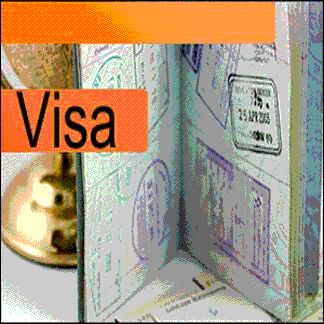
- visas issued by a Vietnam consular office outside Vietnam – foreigners may apply and collect the entry visa at a Vietnam consular office in the country in which the foreigner resides
- visas on arrival – foreigners may collect the entry visa upon arrival at an international airport in Vietnam. A letter issued by the Vietnam Immigration Department is required to be produced for obtaining a visa on arrival.
- entering Vietnam to work for a period of less than three months
- who are members of limited liability companies with two or more members
- who are the owners of one member limited liability companies
- who are members of the Board of Management of joint stock companies established in Vietnam
- entering Vietnam to offer services
- entering Vietnam to deal with issues arising from urgent situations with a work duration of less than three months, but if for more than three months then after working for three months in Vietnam the foreigner must carry out procedures to register for issuance of a work permit
- who are lawyers licensed by the Ministry of Justice to practice as such in Vietnam
- who are heads of representative offices, project offices, and foreigners assigned to represent all activities in Vietnam by foreign non-government organizations
- transferred internally within an enterprise and within the List of Commitments on Services of Vietnam as specified in the WTO Schedule, comprising the following services: business services; information services; construction services; distribution services; education services; environmental services; financial services; health services; tourism services; services of entertainment culture; and transportation services
- going to Vietnam to supply expert and technical consulting services including research, formulation, evaluation monitoring and assessment, management and implementation of a program of project using official development aid (ODA) in accordance with provisions or agreements in international treaty on ODA signed by a competent authority of Vietnam and of the foreign country
- licensed to operate in the information and newspaper sector in Vietnam by the Ministry of Foreign Affairs
- in other certain circumstances which are in accordance with the Prime Minister’s regulations.
Work permits are issued with the same duration as the term of the labor contracts or contracts between the Vietnamese party and the foreign party but will not exceed three years. Work permits may be renewed. Obtaining work permits is a time consuming process and employers are recommended to commence the application preparation as early as possible.

- limited liability companies
- partnerships
- private enterprises.
- one member limited liability company. These are commonly known as “One Member LLCs”
- two members or more limited liability company. The number of members must not exceed fifty. These are commonly known as “Two Member LLCs”
- shareholding company. These are known as “Joint Stock Companies”, or “JSCs”. The minimum number of shareholders is three and there are no restrictions on the maximum number of shareholders. Shareholding companies may issue securities to the public to attract capital in accordance with Vietnam’s legislation on securities.
Establishment of a company
Investors can establish companies in accordance with the EL. These may be wholly owned or jointly owned subject to any WTO restrictions. In some industries, investors must also comply with the conditions laid down in the relevant laws (such as Law on Credit Institutions for banking and financial services, Law on Petroleum for petroleum businesses, Law on Civil Aviation of Vietnam for aviation business, Law on Education for schools, Law on Securities for securities business, and Law on Insurance Business for insurance business).
Investment under contracts
Investors are permitted to sign contracts in the forms of business cooperation contracts (BCC), build, operate, transfer (BOT), build, transfer, operate (BTO) and build, transfer (BT) for cooperation in production, sharing profits and sharing products and other forms of cooperation.
Investment for business expansion
– Investors are permitted to invest in the expansion of existing businesses through the:
- expansion of the scale of business or increase of production capacity
- renovation of technology, increase of product quality or measures for reduction of environmental pollution.
Purchase of shares or contribution of capital Investors are permitted to purchase shares or contribute capital to an economic entity operating in Vietnam at the rates stipulated by the Government.
Merger and acquisition
Investors are permitted to carry out mergers or acquisitions of a company operating in Vietnam, subject to any restrictions on foreign ownership. In addition, investors are permitted to invest indirectly by way of the purchase of bonds, investment fund certificates and other securities, and by way of the establishment of investment funds.
- radio and television broadcasting
- production, publishing and distribution of cultural products
- exploration and mining of minerals
- establishment of infrastructure for telecommunication networks, transmission and the provision of internet and telecommunication services
- establishment of a public postal network and provision of postal services and express services
- construction and operation of river ports, sea ports, terminals and airports
- transportation of goods and passengers by railway, roadway and sea and inland waterways
- fisheries
- production of tobacco
- real estate business
- import, export and distribution business
- education and training
- hospitals and clinics
- other investment sectors related to international treaties to which Vietnam is a member and which restrict the opening of the market to foreign investors.
- projects which are prejudicial to national security, defense or the public interest
- projects which are detrimental to historical and cultural relics or the customs and traditions of Vietnam
- projects that may adversely affect people’s health, spoil resources or destroy the environment
- projects which deal with the provision of harmful waste into Vietnam, projects for the production of toxic chemicals or which utilize toxic agents prohibited under an international treaty
- other investment projects prohibited in accordance with the provision of laws.
Recognized forms of doing business in Vietnam The most common business structures used by foreign investors in Vietnam include:
- wholly owned subsidiaries
- joint venture companies
- business co-operation contracts
- foreign contractors.
Alternatively, foreign investors may also operate by establishing:
- representative offices
- branches.
Foreign investors may also invest indirectly in Vietnam, in the following ways:
- purchase of shareholding, shares, bonds and other valuable papers
- by way of securities investment funds
- by way of other intermediary financial institutions.
However, there are restrictions on the level of foreign ownership of shares in Vietnamese companies in various sectors including the following:
- listed shares
- banking
- petroleum
- aviation
- general insurance
- publishing
- education
- media
- telecommunications
- mining.
- limited liability enterprises
- joint stock enterprises
- partnership enterprises
- private enterprises.
- commerce, including distribution or supply of goods, material, machinery and equipment
- services
- construction and installation, other production and transportation
- lending
- licensing.
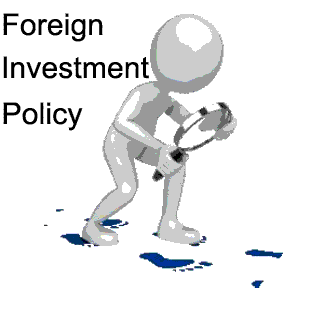
- investment in an industry and/or sector which is on the list of investment incentive sectors promulgated by the Government in accordance with the IL
- investment in an industry and/or sector which is on the list of special investment incentive sectors promulgated by the Government in accordance with the IL
- investment in a region which is on the list of regions with difficult socioeconomic conditions as promulgated by the Government in accordance with the IL
- investment in a region which is on the list of regions with especially difficult socioeconomic conditions as promulgated by the Government in accordance with the IL.
- (i) Investment projects in areas where investment is especially encouraged, and which are carried out in geographical areas facing exceptional socioeconomic difficulties; and (ii) projects involving the use of land for construction of condominiums for industrial park workers under projects approved by competent authorities, covering the house-selling prices or house-leasing prices which do not include land rent expenses; (iii) projects involving the use of land for construction of students’ dormitories with State budget money, for which the units assigned to manage such dormitories may only calculate charges sufficient to cover expenses for services, electricity and water supply, for management and other relevant expenses and must not calculate land rent expenses and depreciate the houses; (iv) projects involving the use of land for construction of public facilities for business purposes in the fields of education, health, physical training, sport, science and technology.
- A three-year exemption for projects on the list of domains where investment is encouraged; and new production or business establishments of economic organizations which are relocated pursuant to State planning or due to environmental pollution.
- A seven-year exemption for projects in geographical areas facing socioeconomic difficulties.
- An 11-year exemption for projects in geographical areas facing exceptional socioeconomic difficulties, projects on the list of areas where investment is especially encouraged, and projects on the list of areas where investment is encouraged which are carried out in geographical areas facing socioeconomic difficulties.
- A 15-year exemption for projects on the list of areas where investment is encouraged which are executed in geographical areas facing exceptional socioeconomic difficulties, and projects on the list of areas where investment is especially encouraged and which are carried out in geographical areas facing socioeconomic difficulties.
The land rental rate applicable to each project was to be kept unchanged for five years. At the end of this period, if the land price prescribed by the provincial-level People’s Committee increases by less than 20 per cent from the land price for calculating the land rental rate at the time of determining the land rental rate applicable to the preceding period, the land price bracket prescribed by the provincial-level People’s Committee at the time of adjustment of the land rental rate will apply for calculating the land rental rate applicable to the subsequent five year period which must not be lower than the land rent rate applicable to the preceding stabilization period.
- investment in the creation of houses and buildings for sale, lease out or grant of hire purchase
- Subject to this Resolution 19, there are five groups of foreigners eligible to purchase apartments, including:
- foreigners who invest directly in Vietnam under the IL or are employed by enterprises doing business activities in Vietnam under EL, including domestic enterprises and foreign invested companies
- foreigners who have made contributions to Vietnam and have received medals awarded by the President of Vietnam, or foreigners who have made great contributions to Vietnam and as decided by the Prime Minister
- foreigners who are working in eco-social fields and hold bachelor degrees or higher degrees and foreigners who have special knowledge or skill that meet Vietnam’s requirements
- foreigners who are married to Vietnamese nationals
- foreign invested enterprises doing business in Vietnam under the IL which are not operating in the real estate business, who have the need to purchase apartments for housing their employees.
- investment in the creation of houses and buildings for sale, lease out or grant of hire purchase
- investment in upgrading land and to invest in infrastructure works on the leased land in order to lease out land with completed infrastructure
- provision of real estate business services, such as real estate: — brokerage services — valuation services — trading floor services — consultancy services — auctioning services — advertising services — management services.

- national taxes: including income tax, value-added tax, sales tax on luxury goods, stamp tax, property tax (on land and buildings), and fiscal departure tax
- regional taxes: including development tax, motor vehicles tax, other minor taxes (household, entertainment, road, advertisement, radio and television taxes)
- customs and excise taxes: including export duty, import duty, tobacco, sugar, beer and alcohol, and gasoline taxes.
- wages and salaries
- interest and dividends
- compensation for work performed
- compensation for use of assets
- commissions and bonuses
- rent
- pensions and royalties
- lottery prizes and awards
- bonuses and awards
- foreign exchange gains
- insurance and reinsurance premiums
- capital gains on property.
Taxpayers are classified as:
- resident taxpayers: this includes companies, partnerships and cooperatives domiciled or incorporated in Indonesia. If a foreign business has a “permanent establishment” (that is, an “establishment regularly used to carry on business in Indonesia by an organization or enterprise not set up or domiciled in Indonesia”), it is considered a resident for tax purposes. Any individual present in Indonesia for more than 183 days in any 12-month period or a person who intends to reside in Indonesia is also classified as a tax resident of Indonesia
- non-resident taxpayers: a non-resident taxpayer is one who receives benefit from activities in Indonesia. Double tax treaties that Indonesia has signed with various countries can provide some relief.
- payments made for a range of services performed within Indonesia
- payment of fees to partnerships or individuals
- payment to offshore funds (these include interest, royalties, technical service fees, dividends)
- certain classes of income, including transfer of title to land/buildings, rent paid on land/ buildings and income from construction and construction consulting services.
- land and building tax which is an annual tax on land, building and permanent structures. Taxpayers are those with the rights over the land or those who possess or control structures to obtain benefit from them
- value-added tax applies to the supply of most goods and services in Indonesia
- stamp duty on execution of certain documents (this is nominal and not an ad valorem tax)
- foreigners’ tax, which is payable by companies for expatriate employees
- fiscal tax on departure from the country (currently Rp1 million on each departure of Indonesians and foreign residents). From 2009, any person with an Indonesian tax file number (Nomor Pokok Wajib Pajak (NPWP)) is exempted from fiscal exit tax.

The Labor Code applies to all employees, including foreign workers, working in Vietnam and generally sets out the rights and obligations of both employers and employees.
Issues relating to workplace relations are highly regulated in Vietnam, including the form of employment contract, term, probationary period, minimum salary, working hours, rest breaks, overtime, annual and other statutory leave entitlements, special benefits for female employees, social and health insurance contributions, internal labor regulations, collective labor agreements, and safety and hygiene.
Employment relations
The Code requires that all employment relationships (with a few exceptions) must be evidenced by labor contracts in the Vietnamese language entered into between employers and employees, including foreign employees, in duplicate and contain prescribed contents. Labor contracts for foreign employees must be registered.
Collective agreements
FIEs established in Vietnam and foreign and international organizations permitted to operate in Vietnam which have a trade union or temporary executive committee of the trade union are required to enter into collective labor agreements with their Vietnamese employees, in addition to the individual labor contracts between the employer and each employee.
The principal provisions of a collective labor agreement include undertakings of the parties in respect of employment and guarantees of employment, working hours and rest breaks, salaries, bonuses, allowances, labor protection, occupational safety and social insurance for employees.
The terms of a collective labor agreement must be accepted by more than 50 percent of the employees and registered with the local labor department.
Internal labor regulations
Enterprises employing ten or more workers are required to adopt internal labor regulations in writing and register the internal labor regulations with the local labor department. Internal labor regulations stipulate the work hours, rest time, order in the enterprise, labor safety, hygiene, protection of assets and technology secrets of the enterprise. Specific forms of disciplinary measures must be included in the internal labor regulations.
Recruitment
FIEs are entitled to recruit Vietnamese employees directly or through labor supply agencies. Foreign organizations and agencies which are licensed to operate in Vietnam must employ Vietnamese employees through labor supply agencies. If the labor supply agency is not able to identify a suitable candidate within 15 days, the foreign organization or individual is entitled to recruit directly. In practice, certain provinces and cities have abolished this requirement with respect to representative offices of foreign companies and such offices are permitted to employ Vietnamese employees directly.
Dismissal
It is very difficult to dismiss employees in Vietnam, even for serious breaches.
The Code provides for limited term contracts for 12 months and up to three years. It is important to ensure that wherever possible all employees are on limited term contracts so that the employer has the option of not renewing the contract upon maturity. It is very difficult to dismiss an employee who is employed on an indefinite term contract.
Definite term contracts automatically convert into indefinite term contracts if the parties do not sign a new definite term contract within 30 days following the expiry of the contract.
Sickness and disability pension and life assurance
Social insurance
Vietnamese employees on employment contracts of a duration of three months or more or for an indefinite term are subject to the compulsory social insurance scheme. Employers must contribute 17 percent of the salary and the employee must contribute seven percent. Both amounts will increase to 18 percent and eight percent respectively as from 1 January 2014.
There is also a compulsory contribution to an unemployment fund. Employees must contribute one per cent of monthly salary, and employers must contribute one per cent of monthly payroll, to the unemployment fund every month.
Employees are entitled to social insurance benefits and allowances in the event of illness, work-related accidents and occupational diseases, pregnancy, retirement, unemployment and death.
Medical insurance
Medical insurance is compulsory and is applicable to Vietnamese and foreign employees employed by and working for foreign invested enterprises, export processing zones and industrial parks and foreign and international organizations operating in Vietnam, except otherwise stipulated by international treaties executed or entered into by the Socialist Republic of Vietnam amongst others.
Premiums paid to the medical insurance fund for such Vietnamese and foreign employees are equal to 4.5 percent of their monthly wages and salaries and allowances (if any) as specified in the labor contract, of which the employer is required to contribute three per cent and the employee 1.5 percent. For foreign workers the contribution is usually insignificant as it is capped at 20 times the minimum wage.
Industrial relations
Trade unions
The establishment of a trade union in the workplace is to be carried out by the employees themselves or by the trade union at provincial level. Although employers are not required to set up trade unions, they are required to provide support for the establishment and operation of the trade unions. Trade unions are established and regulated pursuant to the Law on Trade Unions 1990 issued by the National Assembly, dated 7 July 1990. The trade union of an enterprise is set up to protect the rights and benefits of employees during the employment and represents employees in negotiation with the employer.
The Vietnam General Federation of Labor and trade unions in general are charged principally with the responsibility of discussing and resolving issues related to labor relations.
Settlement and mediation proceedings
The Labor Code 1994 provides for the resolution of labor disputes in the case of an individual labor dispute and also in the case of a collective labor dispute. A collective labor dispute can be classified as a collective labor dispute about rights and a collective labor dispute about benefits.
A party to an individual dispute may request the local labor conciliation council or, if there is none, a local labor conciliator to resolve the dispute.
For certain individual disputes, either party may bring the dispute directly to the Labor Court. If an individual dispute cannot be resolved satisfactorily by the local labor conciliation council or the conciliator (as the case may be), either party may refer the dispute to the Labor Court.
In the case of a collective dispute, either party has the right to request the labor conciliation council or a local labor conciliator as selected by both parties to resolve the dispute. If no satisfactory solution is found, either party may refer the dispute to the Chairman of the relevant People’s Committee of a district, town or provincial city regarding a collective labor dispute about rights, or the labor provincial arbitration council regarding a collective labor dispute about benefits for further settlement. If a collective labor dispute about rights is not resolved by the Chairman of the People’s Committee of district, town or provincial city, either party may refer the dispute to a Labor Court for final resolution or the Labor Collective may go on strike in accordance with the procedure set down in the relevant regulations. While if a collective dispute about benefits is not resolved by the labor provincial arbitration council, the dispute may not be further referred to the court, the Labor Collective however may go on strike in accordance with the procedure set down in the relevant regulations.

First instance procedures
Legal proceedings are commenced by a petition submitted to the competent court within the limitation period. The limitation period is generally two years from the date the benefits and interest of the plaintiff are breached, unless otherwise provided to by specific laws.
At the court hearing, in addition to the parties involved in the dispute, there may be other attendees including the prosecutor, interpreters, witnesses and experts. On conclusion of the court hearing, the court will issue its first instance judgment on the dispute. The court may also issue other decisions in respect of particular issues arising from the trial.
Appeal procedures
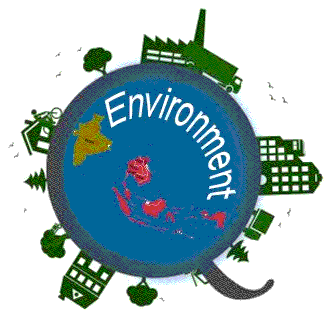
There are almost over 14,000 active foreign investment projects licensed in Vietnam, and despite the global financial crisis, its GDP has grown in recent years. Growth in 2010 was 6.78 percent and 6.3 percent for 2011. Over the past decade, Vietnam has averaged GDP growth of 7.5 percent a year.
Vietnam is an attractive investment destination to foreign companies for many reasons. It has a substantial population (over 87 million people), with the majority below the age of 30, presenting a tremendous domestic market for goods and services. The country also enjoys a very high literacy rate of over 90 percent.
In addition, the Vietnamese Government provides investment incentives to foreign investors in certain industries and where investment is undertaken in low socioeconomic regions. The industries include certain areas of technology, biotechnology, education, infrastructure, and agriculture. Incentives are also available for investment in industrial zones, high tech zones, export processing zones, and economic zones. Incentives can include long term low tax rates, import tax, VAT, corporate income tax (CIT) and personal income tax (PIT) concessions, and concessions for land use fees and rent.
United States Dollars are still widely used in the economy, despite the SBV’s regulations on the circumstances in which they may be used in trade and business. It is common for those dealing in foreign exchange to offer better rates for buying US dollars than the maximum authorized rate.
The Competition Law 2004 (Competition Law) deals with the restraint of competition, abuse of dominant market position, economic concentration and other “unhealthy” anti-competitive practices. It also sets out procedures for the resolution of anti-competition cases and measures for dealing with breaches of the Competition Law.
The Competition Law applies to organizations and individuals conducting business in Vietnam, including enterprises engaged in the production or supply of public utility products or services, State monopolies and industry associations.
Price control
Re-organization of State-owned enterprises (SOEs) The Government has pursued a policy of selling interests in SOEs through a process known as equalization. This normally involves the allotment of parcels of shares to long-term strategic investors and to employees. A minority of shares may be issued on the stock exchange, although the Government maintains a majority shareholding.
Under the EL, SOEs were obliged to be equitized by 1 July 2010. While many small SOEs have now been equitized, most of them (more than 1,300) have not been.
- the sale of shares to strategic investors (up to three) and other investors must not be less than 25 percent of the charter capital of the relevant enterprise
- the sale of shares to other investors must not be less than 50 percent of the 25 percent referred to
- with respect to enterprises on a large scale with State owned capital above 500 billion VND or conducting business in specialized sectors and industries (insurance, banking, posts and telecommunications, aviation, rare mineral exploitation), the ratio of shares auctioned to investors must be considered and specifically decided upon by the Prime Minister or competent authority authorized by the Prime Minister.

Vietnam promulgated the Intellectual Property Law 2005 on 12 December 2005. This Law is consistent with international practice. Accordingly, protection is available for the following types of intellectual property:
- copyright and copyright related rights
- inventions
- industrial designs
- layout-designs of semi-conductor integrated circuits
- business secrets
- trademarks
- trade names
- geographical indications
- rights to plant varieties.
Patents, inventions and utility solutions
Protection for an invention is granted for twenty years from the filing date or the priority date. For “utility solutions” (or technical solution/ technological development), protection is granted for ten years from the filing date or the priority date.
Industrial designs
The duration of protection is five years and renewable for two further five year periods.
Semiconductor integrated circuit layout designs Semiconductor integrated circuit layout designs are defined as a three-dimensional description of circuit elements and their interconnections in semiconductor integrated circuits. Under the laws of Vietnam, protection of a layout design is valid for the following periods, whichever ends earlier:
- ten years from the date of grant of a certificate of protection
- ten years from the date of filing by an authorized person or the date that person permits commercial exploitation of the design anywhere in the world
- 15 years from the date of producing the design.
- not common knowledge
- applicable in business activities whereupon its holder is given advantages in comparison with others
- protected by the owner with necessary measures to avoid disclosure and access.
Further, a geographical indication is a sign used to indicate a product originating from a specific area, locality, region or country. Vietnamese law allows a geographical indication to be eligible for protection if it meets the following conditions:
- the product having the geographical indication originates from the area, locality, territory or country corresponding to such geographical indication
- the product having the geographical indication has a reputation, quality or characteristics essentially attributable to the geographical conditions of the area, locality, territory or country corresponding to such geographical indication.
Trade name
Franchising Law
In practice there are restrictions under the application of the WTO Schedule as described above.
Franchisors
- the business system to be franchised has been operating for at least one year. In a case where a foreign franchisor grants a franchise to a primary franchisee being a Vietnamese business entity, such Vietnamese business entity must operate the franchise business for at least one year in Vietnam before sub-franchising
- the business entity has registered the franchising activity with the competent authority
- the goods and services of the franchise are not on the list of goods and services in which business is prohibited.
Registration of franchising agreements
- franchising activities from overseas into Vietnam including those from export processing zones, non-tariff zones and other separate customs areas into Vietnamese territory
- franchising activities from Vietnam to overseas, including those from Vietnamese territory into export processing zones, non-tariff zones or separate customs areas.
The Department of Industry and Trade where the proposed franchisor registers its operations will carry out registration of domestic franchising activities, except those transferred across the borders of export processing zones, non-tariff zones or separate customs areas in accordance with the laws of Vietnam.

Text coming soon


- visas issued by a Vietnam consular office outside Vietnam – foreigners may apply and collect the entry visa at a Vietnam consular office in the country in which the foreigner resides
- visas on arrival – foreigners may collect the entry visa upon arrival at an international airport in Vietnam. A letter issued by the Vietnam Immigration Department is required to be produced for obtaining a visa on arrival.
- entering Vietnam to work for a period of less than three months
- who are members of limited liability companies with two or more members
- who are the owners of one member limited liability companies
- who are members of the Board of Management of joint stock companies established in Vietnam
- entering Vietnam to offer services
- entering Vietnam to deal with issues arising from urgent situations with a work duration of less than three months, but if for more than three months then after working for three months in Vietnam the foreigner must carry out procedures to register for issuance of a work permit
- who are lawyers licensed by the Ministry of Justice to practice as such in Vietnam
- who are heads of representative offices, project offices, and foreigners assigned to represent all activities in Vietnam by foreign non-government organizations
- transferred internally within an enterprise and within the List of Commitments on Services of Vietnam as specified in the WTO Schedule, comprising the following services: business services; information services; construction services; distribution services; education services; environmental services; financial services; health services; tourism services; services of entertainment culture; and transportation services
- going to Vietnam to supply expert and technical consulting services including research, formulation, evaluation monitoring and assessment, management and implementation of a program of project using official development aid (ODA) in accordance with provisions or agreements in international treaty on ODA signed by a competent authority of Vietnam and of the foreign country
- licensed to operate in the information and newspaper sector in Vietnam by the Ministry of Foreign Affairs
- in other certain circumstances which are in accordance with the Prime Minister’s regulations.
Work permits are issued with the same duration as the term of the labor contracts or contracts between the Vietnamese party and the foreign party but will not exceed three years. Work permits may be renewed. Obtaining work permits is a time consuming process and employers are recommended to commence the application preparation as early as possible.

- limited liability companies
- partnerships
- private enterprises.
- one member limited liability company. These are commonly known as “One Member LLCs”
- two members or more limited liability company. The number of members must not exceed fifty. These are commonly known as “Two Member LLCs”
- shareholding company. These are known as “Joint Stock Companies”, or “JSCs”. The minimum number of shareholders is three and there are no restrictions on the maximum number of shareholders. Shareholding companies may issue securities to the public to attract capital in accordance with Vietnam’s legislation on securities.
Establishment of a company
Investors can establish companies in accordance with the EL. These may be wholly owned or jointly owned subject to any WTO restrictions. In some industries, investors must also comply with the conditions laid down in the relevant laws (such as Law on Credit Institutions for banking and financial services, Law on Petroleum for petroleum businesses, Law on Civil Aviation of Vietnam for aviation business, Law on Education for schools, Law on Securities for securities business, and Law on Insurance Business for insurance business).
Investment under contracts
Investors are permitted to sign contracts in the forms of business cooperation contracts (BCC), build, operate, transfer (BOT), build, transfer, operate (BTO) and build, transfer (BT) for cooperation in production, sharing profits and sharing products and other forms of cooperation.
Investment for business expansion
– Investors are permitted to invest in the expansion of existing businesses through the:
- expansion of the scale of business or increase of production capacity
- renovation of technology, increase of product quality or measures for reduction of environmental pollution.
Purchase of shares or contribution of capital Investors are permitted to purchase shares or contribute capital to an economic entity operating in Vietnam at the rates stipulated by the Government.
Merger and acquisition
Investors are permitted to carry out mergers or acquisitions of a company operating in Vietnam, subject to any restrictions on foreign ownership. In addition, investors are permitted to invest indirectly by way of the purchase of bonds, investment fund certificates and other securities, and by way of the establishment of investment funds.
- radio and television broadcasting
- production, publishing and distribution of cultural products
- exploration and mining of minerals
- establishment of infrastructure for telecommunication networks, transmission and the provision of internet and telecommunication services
- establishment of a public postal network and provision of postal services and express services
- construction and operation of river ports, sea ports, terminals and airports
- transportation of goods and passengers by railway, roadway and sea and inland waterways
- fisheries
- production of tobacco
- real estate business
- import, export and distribution business
- education and training
- hospitals and clinics
- other investment sectors related to international treaties to which Vietnam is a member and which restrict the opening of the market to foreign investors.
- projects which are prejudicial to national security, defense or the public interest
- projects which are detrimental to historical and cultural relics or the customs and traditions of Vietnam
- projects that may adversely affect people’s health, spoil resources or destroy the environment
- projects which deal with the provision of harmful waste into Vietnam, projects for the production of toxic chemicals or which utilize toxic agents prohibited under an international treaty
- other investment projects prohibited in accordance with the provision of laws.
Recognized forms of doing business in Vietnam The most common business structures used by foreign investors in Vietnam include:
- wholly owned subsidiaries
- joint venture companies
- business co-operation contracts
- foreign contractors.
Alternatively, foreign investors may also operate by establishing:
- representative offices
- branches.
Foreign investors may also invest indirectly in Vietnam, in the following ways:
- purchase of shareholding, shares, bonds and other valuable papers
- by way of securities investment funds
- by way of other intermediary financial institutions.
However, there are restrictions on the level of foreign ownership of shares in Vietnamese companies in various sectors including the following:
- listed shares
- banking
- petroleum
- aviation
- general insurance
- publishing
- education
- media
- telecommunications
- mining.
- limited liability enterprises
- joint stock enterprises
- partnership enterprises
- private enterprises.
- commerce, including distribution or supply of goods, material, machinery and equipment
- services
- construction and installation, other production and transportation
- lending
- licensing.

- investment in an industry and/or sector which is on the list of investment incentive sectors promulgated by the Government in accordance with the IL
- investment in an industry and/or sector which is on the list of special investment incentive sectors promulgated by the Government in accordance with the IL
- investment in a region which is on the list of regions with difficult socioeconomic conditions as promulgated by the Government in accordance with the IL
- investment in a region which is on the list of regions with especially difficult socioeconomic conditions as promulgated by the Government in accordance with the IL.
- (i) Investment projects in areas where investment is especially encouraged, and which are carried out in geographical areas facing exceptional socioeconomic difficulties; and (ii) projects involving the use of land for construction of condominiums for industrial park workers under projects approved by competent authorities, covering the house-selling prices or house-leasing prices which do not include land rent expenses; (iii) projects involving the use of land for construction of students’ dormitories with State budget money, for which the units assigned to manage such dormitories may only calculate charges sufficient to cover expenses for services, electricity and water supply, for management and other relevant expenses and must not calculate land rent expenses and depreciate the houses; (iv) projects involving the use of land for construction of public facilities for business purposes in the fields of education, health, physical training, sport, science and technology.
- A three-year exemption for projects on the list of domains where investment is encouraged; and new production or business establishments of economic organizations which are relocated pursuant to State planning or due to environmental pollution.
- A seven-year exemption for projects in geographical areas facing socioeconomic difficulties.
- An 11-year exemption for projects in geographical areas facing exceptional socioeconomic difficulties, projects on the list of areas where investment is especially encouraged, and projects on the list of areas where investment is encouraged which are carried out in geographical areas facing socioeconomic difficulties.
- A 15-year exemption for projects on the list of areas where investment is encouraged which are executed in geographical areas facing exceptional socioeconomic difficulties, and projects on the list of areas where investment is especially encouraged and which are carried out in geographical areas facing socioeconomic difficulties.
The land rental rate applicable to each project was to be kept unchanged for five years. At the end of this period, if the land price prescribed by the provincial-level People’s Committee increases by less than 20 per cent from the land price for calculating the land rental rate at the time of determining the land rental rate applicable to the preceding period, the land price bracket prescribed by the provincial-level People’s Committee at the time of adjustment of the land rental rate will apply for calculating the land rental rate applicable to the subsequent five year period which must not be lower than the land rent rate applicable to the preceding stabilization period.
- investment in the creation of houses and buildings for sale, lease out or grant of hire purchase
- Subject to this Resolution 19, there are five groups of foreigners eligible to purchase apartments, including:
- foreigners who invest directly in Vietnam under the IL or are employed by enterprises doing business activities in Vietnam under EL, including domestic enterprises and foreign invested companies
- foreigners who have made contributions to Vietnam and have received medals awarded by the President of Vietnam, or foreigners who have made great contributions to Vietnam and as decided by the Prime Minister
- foreigners who are working in eco-social fields and hold bachelor degrees or higher degrees and foreigners who have special knowledge or skill that meet Vietnam’s requirements
- foreigners who are married to Vietnamese nationals
- foreign invested enterprises doing business in Vietnam under the IL which are not operating in the real estate business, who have the need to purchase apartments for housing their employees.
- investment in the creation of houses and buildings for sale, lease out or grant of hire purchase
- investment in upgrading land and to invest in infrastructure works on the leased land in order to lease out land with completed infrastructure
- provision of real estate business services, such as real estate: — brokerage services — valuation services — trading floor services — consultancy services — auctioning services — advertising services — management services.

- national taxes: including income tax, value-added tax, sales tax on luxury goods, stamp tax, property tax (on land and buildings), and fiscal departure tax
- regional taxes: including development tax, motor vehicles tax, other minor taxes (household, entertainment, road, advertisement, radio and television taxes)
- customs and excise taxes: including export duty, import duty, tobacco, sugar, beer and alcohol, and gasoline taxes.
- wages and salaries
- interest and dividends
- compensation for work performed
- compensation for use of assets
- commissions and bonuses
- rent
- pensions and royalties
- lottery prizes and awards
- bonuses and awards
- foreign exchange gains
- insurance and reinsurance premiums
- capital gains on property.
Taxpayers are classified as:
- resident taxpayers: this includes companies, partnerships and cooperatives domiciled or incorporated in Indonesia. If a foreign business has a “permanent establishment” (that is, an “establishment regularly used to carry on business in Indonesia by an organization or enterprise not set up or domiciled in Indonesia”), it is considered a resident for tax purposes. Any individual present in Indonesia for more than 183 days in any 12-month period or a person who intends to reside in Indonesia is also classified as a tax resident of Indonesia
- non-resident taxpayers: a non-resident taxpayer is one who receives benefit from activities in Indonesia. Double tax treaties that Indonesia has signed with various countries can provide some relief.
- payments made for a range of services performed within Indonesia
- payment of fees to partnerships or individuals
- payment to offshore funds (these include interest, royalties, technical service fees, dividends)
- certain classes of income, including transfer of title to land/buildings, rent paid on land/ buildings and income from construction and construction consulting services.
- land and building tax which is an annual tax on land, building and permanent structures. Taxpayers are those with the rights over the land or those who possess or control structures to obtain benefit from them
- value-added tax applies to the supply of most goods and services in Indonesia
- stamp duty on execution of certain documents (this is nominal and not an ad valorem tax)
- foreigners’ tax, which is payable by companies for expatriate employees
- fiscal tax on departure from the country (currently Rp1 million on each departure of Indonesians and foreign residents). From 2009, any person with an Indonesian tax file number (Nomor Pokok Wajib Pajak (NPWP)) is exempted from fiscal exit tax.

The Labor Code applies to all employees, including foreign workers, working in Vietnam and generally sets out the rights and obligations of both employers and employees.
Issues relating to workplace relations are highly regulated in Vietnam, including the form of employment contract, term, probationary period, minimum salary, working hours, rest breaks, overtime, annual and other statutory leave entitlements, special benefits for female employees, social and health insurance contributions, internal labor regulations, collective labor agreements, and safety and hygiene.
Employment relations
The Code requires that all employment relationships (with a few exceptions) must be evidenced by labor contracts in the Vietnamese language entered into between employers and employees, including foreign employees, in duplicate and contain prescribed contents. Labor contracts for foreign employees must be registered.
Collective agreements
FIEs established in Vietnam and foreign and international organizations permitted to operate in Vietnam which have a trade union or temporary executive committee of the trade union are required to enter into collective labor agreements with their Vietnamese employees, in addition to the individual labor contracts between the employer and each employee.
The principal provisions of a collective labor agreement include undertakings of the parties in respect of employment and guarantees of employment, working hours and rest breaks, salaries, bonuses, allowances, labor protection, occupational safety and social insurance for employees.
The terms of a collective labor agreement must be accepted by more than 50 percent of the employees and registered with the local labor department.
Internal labor regulations
Enterprises employing ten or more workers are required to adopt internal labor regulations in writing and register the internal labor regulations with the local labor department. Internal labor regulations stipulate the work hours, rest time, order in the enterprise, labor safety, hygiene, protection of assets and technology secrets of the enterprise. Specific forms of disciplinary measures must be included in the internal labor regulations.
Recruitment
FIEs are entitled to recruit Vietnamese employees directly or through labor supply agencies. Foreign organizations and agencies which are licensed to operate in Vietnam must employ Vietnamese employees through labor supply agencies. If the labor supply agency is not able to identify a suitable candidate within 15 days, the foreign organization or individual is entitled to recruit directly. In practice, certain provinces and cities have abolished this requirement with respect to representative offices of foreign companies and such offices are permitted to employ Vietnamese employees directly.
Dismissal
It is very difficult to dismiss employees in Vietnam, even for serious breaches.
The Code provides for limited term contracts for 12 months and up to three years. It is important to ensure that wherever possible all employees are on limited term contracts so that the employer has the option of not renewing the contract upon maturity. It is very difficult to dismiss an employee who is employed on an indefinite term contract.
Definite term contracts automatically convert into indefinite term contracts if the parties do not sign a new definite term contract within 30 days following the expiry of the contract.
Sickness and disability pension and life assurance
Social insurance
Vietnamese employees on employment contracts of a duration of three months or more or for an indefinite term are subject to the compulsory social insurance scheme. Employers must contribute 17 percent of the salary and the employee must contribute seven percent. Both amounts will increase to 18 percent and eight percent respectively as from 1 January 2014.
There is also a compulsory contribution to an unemployment fund. Employees must contribute one per cent of monthly salary, and employers must contribute one per cent of monthly payroll, to the unemployment fund every month.
Employees are entitled to social insurance benefits and allowances in the event of illness, work-related accidents and occupational diseases, pregnancy, retirement, unemployment and death.
Medical insurance
Medical insurance is compulsory and is applicable to Vietnamese and foreign employees employed by and working for foreign invested enterprises, export processing zones and industrial parks and foreign and international organizations operating in Vietnam, except otherwise stipulated by international treaties executed or entered into by the Socialist Republic of Vietnam amongst others.
Premiums paid to the medical insurance fund for such Vietnamese and foreign employees are equal to 4.5 percent of their monthly wages and salaries and allowances (if any) as specified in the labor contract, of which the employer is required to contribute three per cent and the employee 1.5 percent. For foreign workers the contribution is usually insignificant as it is capped at 20 times the minimum wage.
Industrial relations
Trade unions
The establishment of a trade union in the workplace is to be carried out by the employees themselves or by the trade union at provincial level. Although employers are not required to set up trade unions, they are required to provide support for the establishment and operation of the trade unions. Trade unions are established and regulated pursuant to the Law on Trade Unions 1990 issued by the National Assembly, dated 7 July 1990. The trade union of an enterprise is set up to protect the rights and benefits of employees during the employment and represents employees in negotiation with the employer.
The Vietnam General Federation of Labor and trade unions in general are charged principally with the responsibility of discussing and resolving issues related to labor relations.
Settlement and mediation proceedings
The Labor Code 1994 provides for the resolution of labor disputes in the case of an individual labor dispute and also in the case of a collective labor dispute. A collective labor dispute can be classified as a collective labor dispute about rights and a collective labor dispute about benefits.
A party to an individual dispute may request the local labor conciliation council or, if there is none, a local labor conciliator to resolve the dispute.
For certain individual disputes, either party may bring the dispute directly to the Labor Court. If an individual dispute cannot be resolved satisfactorily by the local labor conciliation council or the conciliator (as the case may be), either party may refer the dispute to the Labor Court.
In the case of a collective dispute, either party has the right to request the labor conciliation council or a local labor conciliator as selected by both parties to resolve the dispute. If no satisfactory solution is found, either party may refer the dispute to the Chairman of the relevant People’s Committee of a district, town or provincial city regarding a collective labor dispute about rights, or the labor provincial arbitration council regarding a collective labor dispute about benefits for further settlement. If a collective labor dispute about rights is not resolved by the Chairman of the People’s Committee of district, town or provincial city, either party may refer the dispute to a Labor Court for final resolution or the Labor Collective may go on strike in accordance with the procedure set down in the relevant regulations. While if a collective dispute about benefits is not resolved by the labor provincial arbitration council, the dispute may not be further referred to the court, the Labor Collective however may go on strike in accordance with the procedure set down in the relevant regulations.

First instance procedures
Legal proceedings are commenced by a petition submitted to the competent court within the limitation period. The limitation period is generally two years from the date the benefits and interest of the plaintiff are breached, unless otherwise provided to by specific laws.
At the court hearing, in addition to the parties involved in the dispute, there may be other attendees including the prosecutor, interpreters, witnesses and experts. On conclusion of the court hearing, the court will issue its first instance judgment on the dispute. The court may also issue other decisions in respect of particular issues arising from the trial.
Appeal procedures

There are almost over 14,000 active foreign investment projects licensed in Vietnam, and despite the global financial crisis, its GDP has grown in recent years. Growth in 2010 was 6.78 percent and 6.3 percent for 2011. Over the past decade, Vietnam has averaged GDP growth of 7.5 percent a year.
Vietnam is an attractive investment destination to foreign companies for many reasons. It has a substantial population (over 87 million people), with the majority below the age of 30, presenting a tremendous domestic market for goods and services. The country also enjoys a very high literacy rate of over 90 percent.
In addition, the Vietnamese Government provides investment incentives to foreign investors in certain industries and where investment is undertaken in low socioeconomic regions. The industries include certain areas of technology, biotechnology, education, infrastructure, and agriculture. Incentives are also available for investment in industrial zones, high tech zones, export processing zones, and economic zones. Incentives can include long term low tax rates, import tax, VAT, corporate income tax (CIT) and personal income tax (PIT) concessions, and concessions for land use fees and rent.
United States Dollars are still widely used in the economy, despite the SBV’s regulations on the circumstances in which they may be used in trade and business. It is common for those dealing in foreign exchange to offer better rates for buying US dollars than the maximum authorized rate.
The Competition Law 2004 (Competition Law) deals with the restraint of competition, abuse of dominant market position, economic concentration and other “unhealthy” anti-competitive practices. It also sets out procedures for the resolution of anti-competition cases and measures for dealing with breaches of the Competition Law.
The Competition Law applies to organizations and individuals conducting business in Vietnam, including enterprises engaged in the production or supply of public utility products or services, State monopolies and industry associations.
Price control
Re-organization of State-owned enterprises (SOEs) The Government has pursued a policy of selling interests in SOEs through a process known as equalization. This normally involves the allotment of parcels of shares to long-term strategic investors and to employees. A minority of shares may be issued on the stock exchange, although the Government maintains a majority shareholding.
Under the EL, SOEs were obliged to be equitized by 1 July 2010. While many small SOEs have now been equitized, most of them (more than 1,300) have not been.
- the sale of shares to strategic investors (up to three) and other investors must not be less than 25 percent of the charter capital of the relevant enterprise
- the sale of shares to other investors must not be less than 50 percent of the 25 percent referred to
- with respect to enterprises on a large scale with State owned capital above 500 billion VND or conducting business in specialized sectors and industries (insurance, banking, posts and telecommunications, aviation, rare mineral exploitation), the ratio of shares auctioned to investors must be considered and specifically decided upon by the Prime Minister or competent authority authorized by the Prime Minister.

Vietnam promulgated the Intellectual Property Law 2005 on 12 December 2005. This Law is consistent with international practice. Accordingly, protection is available for the following types of intellectual property:
- copyright and copyright related rights
- inventions
- industrial designs
- layout-designs of semi-conductor integrated circuits
- business secrets
- trademarks
- trade names
- geographical indications
- rights to plant varieties.
Patents, inventions and utility solutions
Protection for an invention is granted for twenty years from the filing date or the priority date. For “utility solutions” (or technical solution/ technological development), protection is granted for ten years from the filing date or the priority date.
Industrial designs
The duration of protection is five years and renewable for two further five year periods.
Semiconductor integrated circuit layout designs Semiconductor integrated circuit layout designs are defined as a three-dimensional description of circuit elements and their interconnections in semiconductor integrated circuits. Under the laws of Vietnam, protection of a layout design is valid for the following periods, whichever ends earlier:
- ten years from the date of grant of a certificate of protection
- ten years from the date of filing by an authorized person or the date that person permits commercial exploitation of the design anywhere in the world
- 15 years from the date of producing the design.
- not common knowledge
- applicable in business activities whereupon its holder is given advantages in comparison with others
- protected by the owner with necessary measures to avoid disclosure and access.
Further, a geographical indication is a sign used to indicate a product originating from a specific area, locality, region or country. Vietnamese law allows a geographical indication to be eligible for protection if it meets the following conditions:
- the product having the geographical indication originates from the area, locality, territory or country corresponding to such geographical indication
- the product having the geographical indication has a reputation, quality or characteristics essentially attributable to the geographical conditions of the area, locality, territory or country corresponding to such geographical indication.
Trade name
Franchising Law
In practice there are restrictions under the application of the WTO Schedule as described above.
Franchisors
- the business system to be franchised has been operating for at least one year. In a case where a foreign franchisor grants a franchise to a primary franchisee being a Vietnamese business entity, such Vietnamese business entity must operate the franchise business for at least one year in Vietnam before sub-franchising
- the business entity has registered the franchising activity with the competent authority
- the goods and services of the franchise are not on the list of goods and services in which business is prohibited.
Registration of franchising agreements
- franchising activities from overseas into Vietnam including those from export processing zones, non-tariff zones and other separate customs areas into Vietnamese territory
- franchising activities from Vietnam to overseas, including those from Vietnamese territory into export processing zones, non-tariff zones or separate customs areas.
The Department of Industry and Trade where the proposed franchisor registers its operations will carry out registration of domestic franchising activities, except those transferred across the borders of export processing zones, non-tariff zones or separate customs areas in accordance with the laws of Vietnam.

Text coming soon


- visas issued by a Vietnam consular office outside Vietnam – foreigners may apply and collect the entry visa at a Vietnam consular office in the country in which the foreigner resides
- visas on arrival – foreigners may collect the entry visa upon arrival at an international airport in Vietnam. A letter issued by the Vietnam Immigration Department is required to be produced for obtaining a visa on arrival.
- entering Vietnam to work for a period of less than three months
- who are members of limited liability companies with two or more members
- who are the owners of one member limited liability companies
- who are members of the Board of Management of joint stock companies established in Vietnam
- entering Vietnam to offer services
- entering Vietnam to deal with issues arising from urgent situations with a work duration of less than three months, but if for more than three months then after working for three months in Vietnam the foreigner must carry out procedures to register for issuance of a work permit
- who are lawyers licensed by the Ministry of Justice to practice as such in Vietnam
- who are heads of representative offices, project offices, and foreigners assigned to represent all activities in Vietnam by foreign non-government organizations
- transferred internally within an enterprise and within the List of Commitments on Services of Vietnam as specified in the WTO Schedule, comprising the following services: business services; information services; construction services; distribution services; education services; environmental services; financial services; health services; tourism services; services of entertainment culture; and transportation services
- going to Vietnam to supply expert and technical consulting services including research, formulation, evaluation monitoring and assessment, management and implementation of a program of project using official development aid (ODA) in accordance with provisions or agreements in international treaty on ODA signed by a competent authority of Vietnam and of the foreign country
- licensed to operate in the information and newspaper sector in Vietnam by the Ministry of Foreign Affairs
- in other certain circumstances which are in accordance with the Prime Minister’s regulations.
Work permits are issued with the same duration as the term of the labor contracts or contracts between the Vietnamese party and the foreign party but will not exceed three years. Work permits may be renewed. Obtaining work permits is a time consuming process and employers are recommended to commence the application preparation as early as possible.

- limited liability companies
- partnerships
- private enterprises.
- one member limited liability company. These are commonly known as “One Member LLCs”
- two members or more limited liability company. The number of members must not exceed fifty. These are commonly known as “Two Member LLCs”
- shareholding company. These are known as “Joint Stock Companies”, or “JSCs”. The minimum number of shareholders is three and there are no restrictions on the maximum number of shareholders. Shareholding companies may issue securities to the public to attract capital in accordance with Vietnam’s legislation on securities.
Establishment of a company
Investors can establish companies in accordance with the EL. These may be wholly owned or jointly owned subject to any WTO restrictions. In some industries, investors must also comply with the conditions laid down in the relevant laws (such as Law on Credit Institutions for banking and financial services, Law on Petroleum for petroleum businesses, Law on Civil Aviation of Vietnam for aviation business, Law on Education for schools, Law on Securities for securities business, and Law on Insurance Business for insurance business).
Investment under contracts
Investors are permitted to sign contracts in the forms of business cooperation contracts (BCC), build, operate, transfer (BOT), build, transfer, operate (BTO) and build, transfer (BT) for cooperation in production, sharing profits and sharing products and other forms of cooperation.
Investment for business expansion
– Investors are permitted to invest in the expansion of existing businesses through the:
- expansion of the scale of business or increase of production capacity
- renovation of technology, increase of product quality or measures for reduction of environmental pollution.
Purchase of shares or contribution of capital Investors are permitted to purchase shares or contribute capital to an economic entity operating in Vietnam at the rates stipulated by the Government.
Merger and acquisition
Investors are permitted to carry out mergers or acquisitions of a company operating in Vietnam, subject to any restrictions on foreign ownership. In addition, investors are permitted to invest indirectly by way of the purchase of bonds, investment fund certificates and other securities, and by way of the establishment of investment funds.
- radio and television broadcasting
- production, publishing and distribution of cultural products
- exploration and mining of minerals
- establishment of infrastructure for telecommunication networks, transmission and the provision of internet and telecommunication services
- establishment of a public postal network and provision of postal services and express services
- construction and operation of river ports, sea ports, terminals and airports
- transportation of goods and passengers by railway, roadway and sea and inland waterways
- fisheries
- production of tobacco
- real estate business
- import, export and distribution business
- education and training
- hospitals and clinics
- other investment sectors related to international treaties to which Vietnam is a member and which restrict the opening of the market to foreign investors.
- projects which are prejudicial to national security, defense or the public interest
- projects which are detrimental to historical and cultural relics or the customs and traditions of Vietnam
- projects that may adversely affect people’s health, spoil resources or destroy the environment
- projects which deal with the provision of harmful waste into Vietnam, projects for the production of toxic chemicals or which utilize toxic agents prohibited under an international treaty
- other investment projects prohibited in accordance with the provision of laws.
Recognized forms of doing business in Vietnam The most common business structures used by foreign investors in Vietnam include:
- wholly owned subsidiaries
- joint venture companies
- business co-operation contracts
- foreign contractors.
Alternatively, foreign investors may also operate by establishing:
- representative offices
- branches.
Foreign investors may also invest indirectly in Vietnam, in the following ways:
- purchase of shareholding, shares, bonds and other valuable papers
- by way of securities investment funds
- by way of other intermediary financial institutions.
However, there are restrictions on the level of foreign ownership of shares in Vietnamese companies in various sectors including the following:
- listed shares
- banking
- petroleum
- aviation
- general insurance
- publishing
- education
- media
- telecommunications
- mining.
- limited liability enterprises
- joint stock enterprises
- partnership enterprises
- private enterprises.
- commerce, including distribution or supply of goods, material, machinery and equipment
- services
- construction and installation, other production and transportation
- lending
- licensing.

- investment in an industry and/or sector which is on the list of investment incentive sectors promulgated by the Government in accordance with the IL
- investment in an industry and/or sector which is on the list of special investment incentive sectors promulgated by the Government in accordance with the IL
- investment in a region which is on the list of regions with difficult socioeconomic conditions as promulgated by the Government in accordance with the IL
- investment in a region which is on the list of regions with especially difficult socioeconomic conditions as promulgated by the Government in accordance with the IL.
- (i) Investment projects in areas where investment is especially encouraged, and which are carried out in geographical areas facing exceptional socioeconomic difficulties; and (ii) projects involving the use of land for construction of condominiums for industrial park workers under projects approved by competent authorities, covering the house-selling prices or house-leasing prices which do not include land rent expenses; (iii) projects involving the use of land for construction of students’ dormitories with State budget money, for which the units assigned to manage such dormitories may only calculate charges sufficient to cover expenses for services, electricity and water supply, for management and other relevant expenses and must not calculate land rent expenses and depreciate the houses; (iv) projects involving the use of land for construction of public facilities for business purposes in the fields of education, health, physical training, sport, science and technology.
- A three-year exemption for projects on the list of domains where investment is encouraged; and new production or business establishments of economic organizations which are relocated pursuant to State planning or due to environmental pollution.
- A seven-year exemption for projects in geographical areas facing socioeconomic difficulties.
- An 11-year exemption for projects in geographical areas facing exceptional socioeconomic difficulties, projects on the list of areas where investment is especially encouraged, and projects on the list of areas where investment is encouraged which are carried out in geographical areas facing socioeconomic difficulties.
- A 15-year exemption for projects on the list of areas where investment is encouraged which are executed in geographical areas facing exceptional socioeconomic difficulties, and projects on the list of areas where investment is especially encouraged and which are carried out in geographical areas facing socioeconomic difficulties.
The land rental rate applicable to each project was to be kept unchanged for five years. At the end of this period, if the land price prescribed by the provincial-level People’s Committee increases by less than 20 per cent from the land price for calculating the land rental rate at the time of determining the land rental rate applicable to the preceding period, the land price bracket prescribed by the provincial-level People’s Committee at the time of adjustment of the land rental rate will apply for calculating the land rental rate applicable to the subsequent five year period which must not be lower than the land rent rate applicable to the preceding stabilization period.
- investment in the creation of houses and buildings for sale, lease out or grant of hire purchase
- Subject to this Resolution 19, there are five groups of foreigners eligible to purchase apartments, including:
- foreigners who invest directly in Vietnam under the IL or are employed by enterprises doing business activities in Vietnam under EL, including domestic enterprises and foreign invested companies
- foreigners who have made contributions to Vietnam and have received medals awarded by the President of Vietnam, or foreigners who have made great contributions to Vietnam and as decided by the Prime Minister
- foreigners who are working in eco-social fields and hold bachelor degrees or higher degrees and foreigners who have special knowledge or skill that meet Vietnam’s requirements
- foreigners who are married to Vietnamese nationals
- foreign invested enterprises doing business in Vietnam under the IL which are not operating in the real estate business, who have the need to purchase apartments for housing their employees.
- investment in the creation of houses and buildings for sale, lease out or grant of hire purchase
- investment in upgrading land and to invest in infrastructure works on the leased land in order to lease out land with completed infrastructure
- provision of real estate business services, such as real estate: — brokerage services — valuation services — trading floor services — consultancy services — auctioning services — advertising services — management services.

- national taxes: including income tax, value-added tax, sales tax on luxury goods, stamp tax, property tax (on land and buildings), and fiscal departure tax
- regional taxes: including development tax, motor vehicles tax, other minor taxes (household, entertainment, road, advertisement, radio and television taxes)
- customs and excise taxes: including export duty, import duty, tobacco, sugar, beer and alcohol, and gasoline taxes.
- wages and salaries
- interest and dividends
- compensation for work performed
- compensation for use of assets
- commissions and bonuses
- rent
- pensions and royalties
- lottery prizes and awards
- bonuses and awards
- foreign exchange gains
- insurance and reinsurance premiums
- capital gains on property.
Taxpayers are classified as:
- resident taxpayers: this includes companies, partnerships and cooperatives domiciled or incorporated in Indonesia. If a foreign business has a “permanent establishment” (that is, an “establishment regularly used to carry on business in Indonesia by an organization or enterprise not set up or domiciled in Indonesia”), it is considered a resident for tax purposes. Any individual present in Indonesia for more than 183 days in any 12-month period or a person who intends to reside in Indonesia is also classified as a tax resident of Indonesia
- non-resident taxpayers: a non-resident taxpayer is one who receives benefit from activities in Indonesia. Double tax treaties that Indonesia has signed with various countries can provide some relief.
- payments made for a range of services performed within Indonesia
- payment of fees to partnerships or individuals
- payment to offshore funds (these include interest, royalties, technical service fees, dividends)
- certain classes of income, including transfer of title to land/buildings, rent paid on land/ buildings and income from construction and construction consulting services.
- land and building tax which is an annual tax on land, building and permanent structures. Taxpayers are those with the rights over the land or those who possess or control structures to obtain benefit from them
- value-added tax applies to the supply of most goods and services in Indonesia
- stamp duty on execution of certain documents (this is nominal and not an ad valorem tax)
- foreigners’ tax, which is payable by companies for expatriate employees
- fiscal tax on departure from the country (currently Rp1 million on each departure of Indonesians and foreign residents). From 2009, any person with an Indonesian tax file number (Nomor Pokok Wajib Pajak (NPWP)) is exempted from fiscal exit tax.

The Labor Code applies to all employees, including foreign workers, working in Vietnam and generally sets out the rights and obligations of both employers and employees.
Issues relating to workplace relations are highly regulated in Vietnam, including the form of employment contract, term, probationary period, minimum salary, working hours, rest breaks, overtime, annual and other statutory leave entitlements, special benefits for female employees, social and health insurance contributions, internal labor regulations, collective labor agreements, and safety and hygiene.
Employment relations
The Code requires that all employment relationships (with a few exceptions) must be evidenced by labor contracts in the Vietnamese language entered into between employers and employees, including foreign employees, in duplicate and contain prescribed contents. Labor contracts for foreign employees must be registered.
Collective agreements
FIEs established in Vietnam and foreign and international organizations permitted to operate in Vietnam which have a trade union or temporary executive committee of the trade union are required to enter into collective labor agreements with their Vietnamese employees, in addition to the individual labor contracts between the employer and each employee.
The principal provisions of a collective labor agreement include undertakings of the parties in respect of employment and guarantees of employment, working hours and rest breaks, salaries, bonuses, allowances, labor protection, occupational safety and social insurance for employees.
The terms of a collective labor agreement must be accepted by more than 50 percent of the employees and registered with the local labor department.
Internal labor regulations
Enterprises employing ten or more workers are required to adopt internal labor regulations in writing and register the internal labor regulations with the local labor department. Internal labor regulations stipulate the work hours, rest time, order in the enterprise, labor safety, hygiene, protection of assets and technology secrets of the enterprise. Specific forms of disciplinary measures must be included in the internal labor regulations.
Recruitment
FIEs are entitled to recruit Vietnamese employees directly or through labor supply agencies. Foreign organizations and agencies which are licensed to operate in Vietnam must employ Vietnamese employees through labor supply agencies. If the labor supply agency is not able to identify a suitable candidate within 15 days, the foreign organization or individual is entitled to recruit directly. In practice, certain provinces and cities have abolished this requirement with respect to representative offices of foreign companies and such offices are permitted to employ Vietnamese employees directly.
Dismissal
It is very difficult to dismiss employees in Vietnam, even for serious breaches.
The Code provides for limited term contracts for 12 months and up to three years. It is important to ensure that wherever possible all employees are on limited term contracts so that the employer has the option of not renewing the contract upon maturity. It is very difficult to dismiss an employee who is employed on an indefinite term contract.
Definite term contracts automatically convert into indefinite term contracts if the parties do not sign a new definite term contract within 30 days following the expiry of the contract.
Sickness and disability pension and life assurance
Social insurance
Vietnamese employees on employment contracts of a duration of three months or more or for an indefinite term are subject to the compulsory social insurance scheme. Employers must contribute 17 percent of the salary and the employee must contribute seven percent. Both amounts will increase to 18 percent and eight percent respectively as from 1 January 2014.
There is also a compulsory contribution to an unemployment fund. Employees must contribute one per cent of monthly salary, and employers must contribute one per cent of monthly payroll, to the unemployment fund every month.
Employees are entitled to social insurance benefits and allowances in the event of illness, work-related accidents and occupational diseases, pregnancy, retirement, unemployment and death.
Medical insurance
Medical insurance is compulsory and is applicable to Vietnamese and foreign employees employed by and working for foreign invested enterprises, export processing zones and industrial parks and foreign and international organizations operating in Vietnam, except otherwise stipulated by international treaties executed or entered into by the Socialist Republic of Vietnam amongst others.
Premiums paid to the medical insurance fund for such Vietnamese and foreign employees are equal to 4.5 percent of their monthly wages and salaries and allowances (if any) as specified in the labor contract, of which the employer is required to contribute three per cent and the employee 1.5 percent. For foreign workers the contribution is usually insignificant as it is capped at 20 times the minimum wage.
Industrial relations
Trade unions
The establishment of a trade union in the workplace is to be carried out by the employees themselves or by the trade union at provincial level. Although employers are not required to set up trade unions, they are required to provide support for the establishment and operation of the trade unions. Trade unions are established and regulated pursuant to the Law on Trade Unions 1990 issued by the National Assembly, dated 7 July 1990. The trade union of an enterprise is set up to protect the rights and benefits of employees during the employment and represents employees in negotiation with the employer.
The Vietnam General Federation of Labor and trade unions in general are charged principally with the responsibility of discussing and resolving issues related to labor relations.
Settlement and mediation proceedings
The Labor Code 1994 provides for the resolution of labor disputes in the case of an individual labor dispute and also in the case of a collective labor dispute. A collective labor dispute can be classified as a collective labor dispute about rights and a collective labor dispute about benefits.
A party to an individual dispute may request the local labor conciliation council or, if there is none, a local labor conciliator to resolve the dispute.
For certain individual disputes, either party may bring the dispute directly to the Labor Court. If an individual dispute cannot be resolved satisfactorily by the local labor conciliation council or the conciliator (as the case may be), either party may refer the dispute to the Labor Court.
In the case of a collective dispute, either party has the right to request the labor conciliation council or a local labor conciliator as selected by both parties to resolve the dispute. If no satisfactory solution is found, either party may refer the dispute to the Chairman of the relevant People’s Committee of a district, town or provincial city regarding a collective labor dispute about rights, or the labor provincial arbitration council regarding a collective labor dispute about benefits for further settlement. If a collective labor dispute about rights is not resolved by the Chairman of the People’s Committee of district, town or provincial city, either party may refer the dispute to a Labor Court for final resolution or the Labor Collective may go on strike in accordance with the procedure set down in the relevant regulations. While if a collective dispute about benefits is not resolved by the labor provincial arbitration council, the dispute may not be further referred to the court, the Labor Collective however may go on strike in accordance with the procedure set down in the relevant regulations.

First instance procedures
Legal proceedings are commenced by a petition submitted to the competent court within the limitation period. The limitation period is generally two years from the date the benefits and interest of the plaintiff are breached, unless otherwise provided to by specific laws.
At the court hearing, in addition to the parties involved in the dispute, there may be other attendees including the prosecutor, interpreters, witnesses and experts. On conclusion of the court hearing, the court will issue its first instance judgment on the dispute. The court may also issue other decisions in respect of particular issues arising from the trial.
Appeal procedures

There are almost over 14,000 active foreign investment projects licensed in Vietnam, and despite the global financial crisis, its GDP has grown in recent years. Growth in 2010 was 6.78 percent and 6.3 percent for 2011. Over the past decade, Vietnam has averaged GDP growth of 7.5 percent a year.
Vietnam is an attractive investment destination to foreign companies for many reasons. It has a substantial population (over 87 million people), with the majority below the age of 30, presenting a tremendous domestic market for goods and services. The country also enjoys a very high literacy rate of over 90 percent.
In addition, the Vietnamese Government provides investment incentives to foreign investors in certain industries and where investment is undertaken in low socioeconomic regions. The industries include certain areas of technology, biotechnology, education, infrastructure, and agriculture. Incentives are also available for investment in industrial zones, high tech zones, export processing zones, and economic zones. Incentives can include long term low tax rates, import tax, VAT, corporate income tax (CIT) and personal income tax (PIT) concessions, and concessions for land use fees and rent.
United States Dollars are still widely used in the economy, despite the SBV’s regulations on the circumstances in which they may be used in trade and business. It is common for those dealing in foreign exchange to offer better rates for buying US dollars than the maximum authorized rate.
The Competition Law 2004 (Competition Law) deals with the restraint of competition, abuse of dominant market position, economic concentration and other “unhealthy” anti-competitive practices. It also sets out procedures for the resolution of anti-competition cases and measures for dealing with breaches of the Competition Law.
The Competition Law applies to organizations and individuals conducting business in Vietnam, including enterprises engaged in the production or supply of public utility products or services, State monopolies and industry associations.
Price control
Re-organization of State-owned enterprises (SOEs) The Government has pursued a policy of selling interests in SOEs through a process known as equalization. This normally involves the allotment of parcels of shares to long-term strategic investors and to employees. A minority of shares may be issued on the stock exchange, although the Government maintains a majority shareholding.
Under the EL, SOEs were obliged to be equitized by 1 July 2010. While many small SOEs have now been equitized, most of them (more than 1,300) have not been.
- the sale of shares to strategic investors (up to three) and other investors must not be less than 25 percent of the charter capital of the relevant enterprise
- the sale of shares to other investors must not be less than 50 percent of the 25 percent referred to
- with respect to enterprises on a large scale with State owned capital above 500 billion VND or conducting business in specialized sectors and industries (insurance, banking, posts and telecommunications, aviation, rare mineral exploitation), the ratio of shares auctioned to investors must be considered and specifically decided upon by the Prime Minister or competent authority authorized by the Prime Minister.

Vietnam promulgated the Intellectual Property Law 2005 on 12 December 2005. This Law is consistent with international practice. Accordingly, protection is available for the following types of intellectual property:
- copyright and copyright related rights
- inventions
- industrial designs
- layout-designs of semi-conductor integrated circuits
- business secrets
- trademarks
- trade names
- geographical indications
- rights to plant varieties.
Patents, inventions and utility solutions
Protection for an invention is granted for twenty years from the filing date or the priority date. For “utility solutions” (or technical solution/ technological development), protection is granted for ten years from the filing date or the priority date.
Industrial designs
The duration of protection is five years and renewable for two further five year periods.
Semiconductor integrated circuit layout designs Semiconductor integrated circuit layout designs are defined as a three-dimensional description of circuit elements and their interconnections in semiconductor integrated circuits. Under the laws of Vietnam, protection of a layout design is valid for the following periods, whichever ends earlier:
- ten years from the date of grant of a certificate of protection
- ten years from the date of filing by an authorized person or the date that person permits commercial exploitation of the design anywhere in the world
- 15 years from the date of producing the design.
- not common knowledge
- applicable in business activities whereupon its holder is given advantages in comparison with others
- protected by the owner with necessary measures to avoid disclosure and access.
Further, a geographical indication is a sign used to indicate a product originating from a specific area, locality, region or country. Vietnamese law allows a geographical indication to be eligible for protection if it meets the following conditions:
- the product having the geographical indication originates from the area, locality, territory or country corresponding to such geographical indication
- the product having the geographical indication has a reputation, quality or characteristics essentially attributable to the geographical conditions of the area, locality, territory or country corresponding to such geographical indication.
Trade name
Franchising Law
In practice there are restrictions under the application of the WTO Schedule as described above.
Franchisors
- the business system to be franchised has been operating for at least one year. In a case where a foreign franchisor grants a franchise to a primary franchisee being a Vietnamese business entity, such Vietnamese business entity must operate the franchise business for at least one year in Vietnam before sub-franchising
- the business entity has registered the franchising activity with the competent authority
- the goods and services of the franchise are not on the list of goods and services in which business is prohibited.
Registration of franchising agreements
- franchising activities from overseas into Vietnam including those from export processing zones, non-tariff zones and other separate customs areas into Vietnamese territory
- franchising activities from Vietnam to overseas, including those from Vietnamese territory into export processing zones, non-tariff zones or separate customs areas.
The Department of Industry and Trade where the proposed franchisor registers its operations will carry out registration of domestic franchising activities, except those transferred across the borders of export processing zones, non-tariff zones or separate customs areas in accordance with the laws of Vietnam.

Text coming soon
CONTACT WITH US
Give us your information



